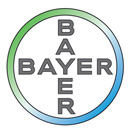Non-Disclosure Agreement Word
Publicado el 27/6/2022
Non-Disclosure Agreement Word: What You Need to Know
If you`re involved in any kind of business dealing that involves the exchange of sensitive information, it`s important to protect yourself legally. One way to do this is through a non-disclosure agreement (NDA). An NDA is a legally binding contract that prohibits the parties involved from divulging confidential information to third parties. While NDAs can vary in terms of their language and scope, there are a few key words and phrases that are typically included in these agreements.
Confidential Information
The first thing that an NDA will define is what constitutes “confidential information.” This can include anything from trade secrets and proprietary technology to customer lists and financial data. The definition of confidential information should be as specific as possible, to avoid any confusion or dispute about what information is covered by the agreement.
Restricted Use
An NDA will typically prohibit the recipient of confidential information from using that information for anything other than the agreed-upon purpose. For example, if you`re sharing confidential financial data with a potential investor, the NDA would restrict the investor from using that data for any purpose other than evaluating the investment opportunity. The restricted use clause should clearly specify what the recipient is allowed to do with the information, and what they`re not allowed to do.
Duration
An NDA will also specify how long the agreement will be in effect. This can vary depending on the nature of the relationship between the parties, and the level of sensitivity of the information being shared. For example, if you`re sharing a trade secret with a partner, the NDA might remain in effect for as long as the information remains a trade secret. The duration clause should be specific and reasonable, to avoid any challenges to the enforceability of the agreement.
Jurisdiction and Governing Law
The final important element of an NDA is the jurisdiction and governing law clause. This clause specifies the state or country whose laws will apply to the agreement, and where any disputes will be resolved. This is important because different jurisdictions may have different laws regarding the enforceability of NDAs, and it`s important to choose a jurisdiction that is friendly to your business interests.
In Conclusion
If you`re exchanging confidential information with anyone in a business context, it`s important to have a non-disclosure agreement in place. By including key words and phrases such as confidential information, restricted use, duration, and jurisdiction and governing law, you can ensure that your NDA is as effective as possible. Remember to seek the advice of an attorney if you have any questions or concerns about your NDA, to ensure that it is legally sound and protects your business interests appropriately.
- Free Template for Prenuptial Agreement
- Material Handling Agreement Form
- Kentucky Marriage Separation Agreement
- China`s-Parliament-Ratifies-Paris-Climate-Change-Agreement-Ahead
- Contract Law Agreement Example
- Edit Rent Agreement
- Pie Agreement Definition
- Isda Agreement Template Pdf
- Distributor Agreement Auf Deutsch
- Pa Collaborative Agreement Texas


Hipertension Pulmonar Chile de Ramlight Studio está bajo licencia Creative Commons Atribución-No Comercial-Sin Derivadas 3.0 Unported.